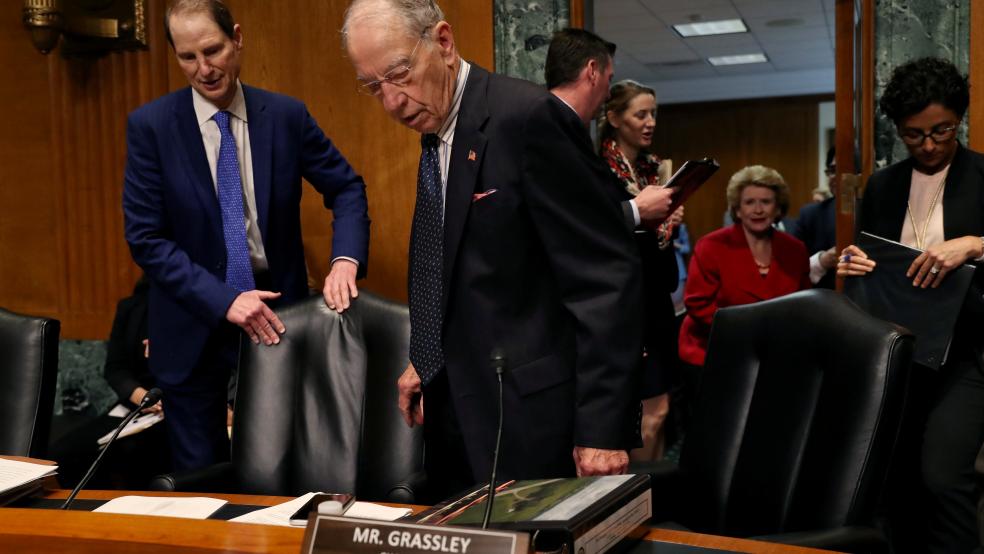A bipartisan bill that would limit the increase in drug prices in the Medicare program moved forward in the Senate Thursday, advancing from the Senate Finance Committee to the full Senate by a vote of 19-9.
Spearheaded by Sens. Chuck Grassley (R-IA) and Ron Wyden (D-OR), the "Prescription Drug Pricing Reduction Act of 2019" would restrict price increases for drugs covered by Medicare Part D to the rate of inflation and require pharmaceutical companies to refund revenues generated by price hikes above that level.
The bill, which the Congressional Budget Office said would save more than $100 billion over a decade, would also cap out-of-pocket expenses for Medicare beneficiaries, reform Medicare’s prescription drug benefit, and tweak Medicaid rebate rules, among other provisions.
A symbolic victory: It’s significant that the bill passed through the committee, given fierce opposition from the pharmaceutical industry. Stephen Ubl, head of the lobbying group PhRMA, argued against the legislation earlier this week, claiming that the bill “fails to meet the fundamental test of providing meaningful relief at the pharmacy counter for the vast majority of seniors.”
But a tough road ahead: Although there is widespread agreement that Congress must do something about drug prices, the bill is unlikely to pass the Senate in its current form give the opposition of the powerful pharma lobby and resistance from some Republican lawmakers. Republicans accounted for all of the no votes in committee Thursday, with several GOP senators arguing that the limit on price increases amounts to the imposition of government price controls that violate free market orthodoxy. Sen. Pat Toomey (R-PA) tried unsuccessfully to strike the price limit mechanism from the bill. An amendment that would allow Medicare to negotiate drug prices was struck down.
What’s next: Senate Majority Leader Mitch McConnell has not yet indicated whether he will bring the bill to the Senate floor for a vote. But Sen. John Cornyn (R-TX), the majority whip, said Thursday that the “bill is not anywhere near action on the floor.”




